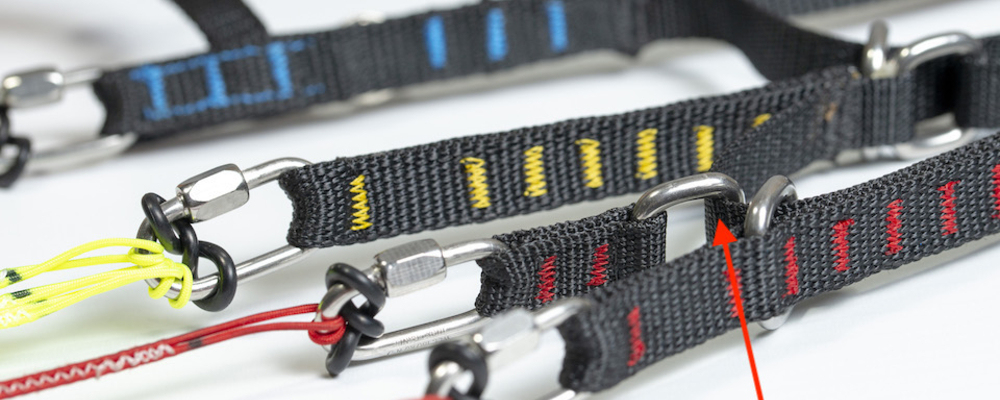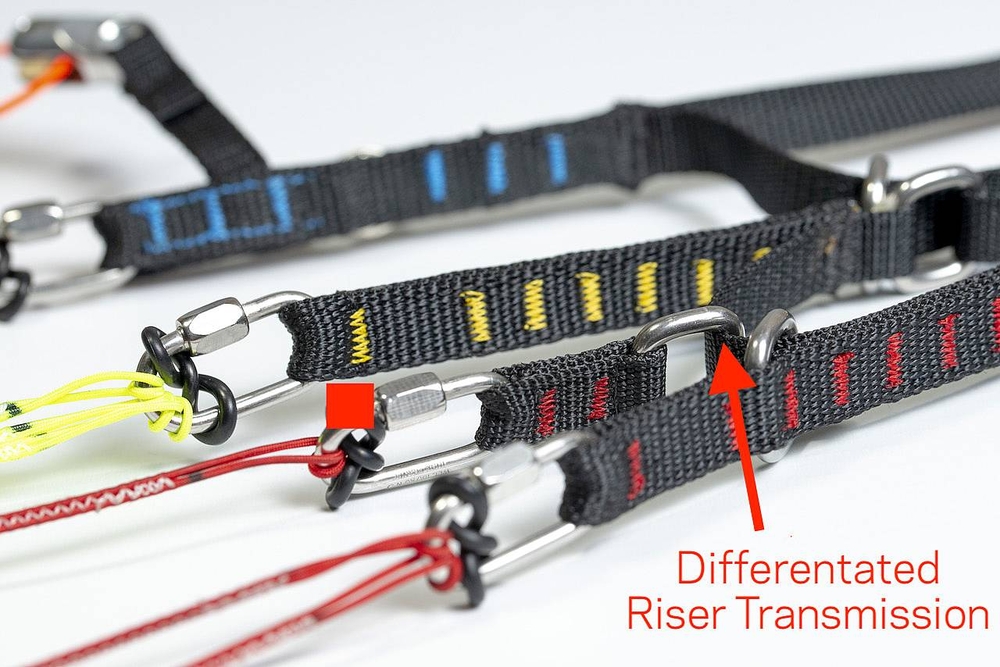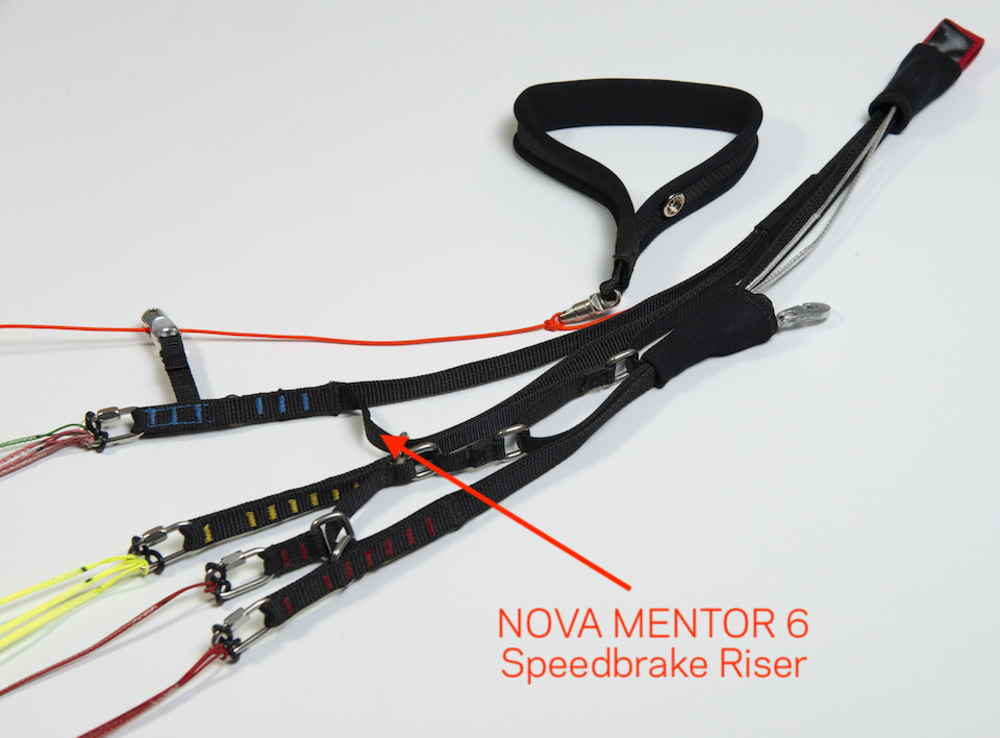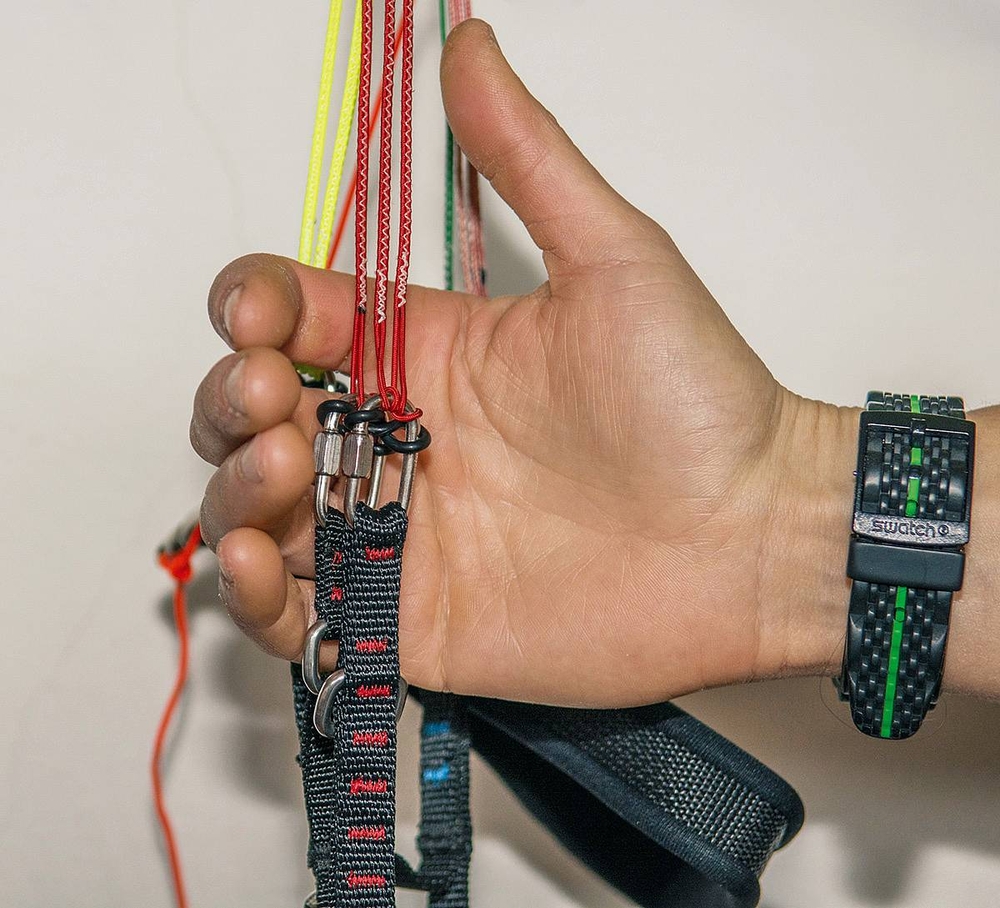
Optimised MENTOR 6 riser

Differentiated A3 riser transmission
In this A-line configuration, there is a speed system runner. If the pilot pushes the speed-bar, the inner Arisers are fully accelerated, while the outer ones are only accelerated by 50%. The wing twist changes and the sail’s tension is increased in the spanwise direction. This has the effect of increasing the stability of the canopy when accelerated and the wing is less prone to collapse.
Optimised MENTOR 6 Speedbrake Riser
The NOVA Speedbrake Riser is the first three-liner riser which permits the glider to be accelerated as well as decelerated. (We deliberately don’t use the word “brake” in this context, because the Speedbrake Riser was designed to be used when accelerating).
Why use the Speedbrake Riser (SBR)? When accelerating, many pilots use the C-lines to compensate for pitch and roll movements. While this works well on two-liners, on a three-liner this causes a distinct performance-limiting crease in the profile (and for this reason we are no fans of C-handles).

To eliminate this crease, we developed the NOVA Speedbrake Riser in conjunction with our team pilot Robert Schaller, a engineer and enthusiastic crosscountry pilot. In this innovative system, the B and Crisers are connected through a webbing strap and pulley. If the pilot pulls the C-riser back and down in a radius with the carabiner as a pivot point, the B-area shortens, but only by 50%. The wing “decelerates” and remains crease-free and undeformed – and most importantly, there is no loss of performance!
We received a lot of praise for the SBR, and other manufacturers brought similar systems to the market. The idea proved itself.
On the MENTOR 6 risers we optimised the SBR. The connecting strap between the B- and C-area now runs deeper. This has the advantage that a) the hands are a little lower when flying (aerodynamically advantageous and more ergonomic), and b) during strong wind launches, the Crisers can still be used for canopy control.
We are so convinced of the benefits of the MENTOR 6 SBR that we are fitting it as standard. So, the SBR is no longer an optional, extra cost accessory, it comes as standard!
Practical tips
- It is important that the pilot should familiarise themselves with the SBR in calm conditions. If the Speedbrake is pulled too much or too suddenly when the wing is already pitched back there is the risk of stall.
- Never brake and accelerate at the same time! Using the brakes during accelerated flight is not only detrimental to performance, but (in comparison to non-accelerated flight) it increases the likelihood of collapses Instead, please use the SBR, or compensate for the pitch movement using the speed-bar.

Advice on holding the MENTOR 6 A-riser during take off
When inflating the MENTOR 6 we recommend holding the A-riser directly at the maillons (see image) – NOT the webbing under the maillons. Holding the risers in this way, the MENTOR 6 will launch in an exemplary fashion - wether forward or reverse. The wing climbs cleanly and directly without hanging back or having a tendency to overshoot.
NOT like this: If the risers are held below the maillons, the MENTOR 6 has a tendency to hang back. This is due to the relatively small distance between the Aand B-areas (because of the A3- transmission and the Speedbrake-riser). Too much pull on the B-area brakes the inflation.